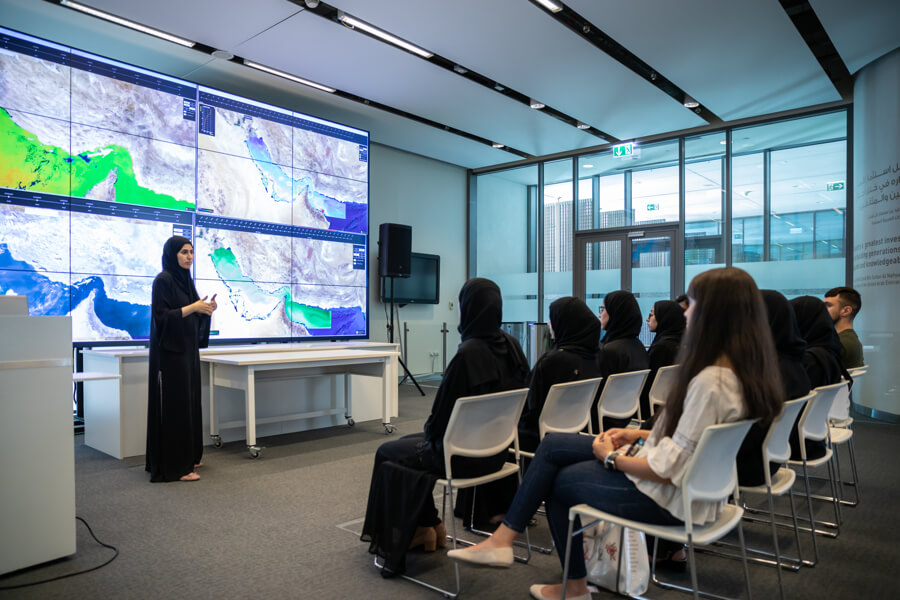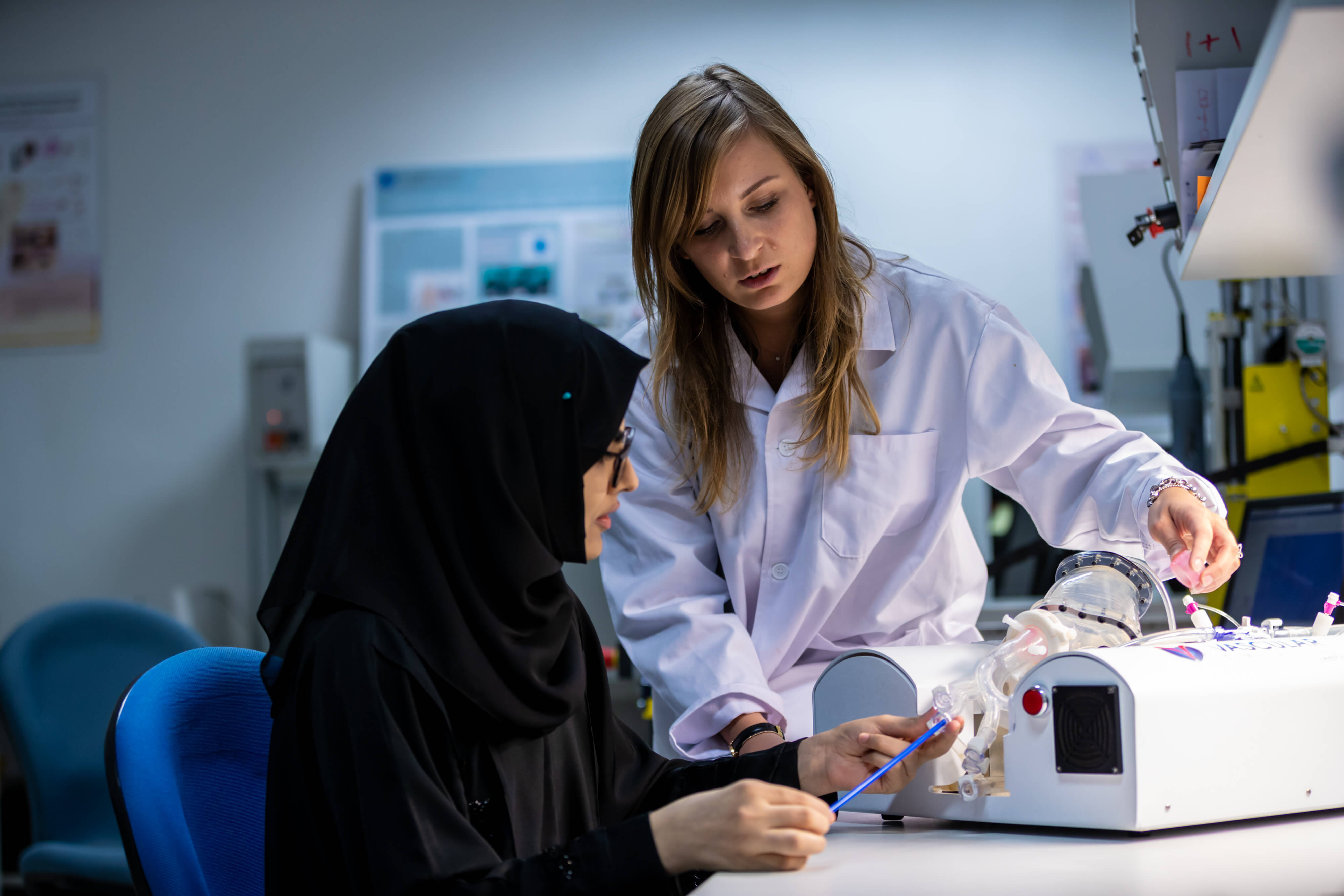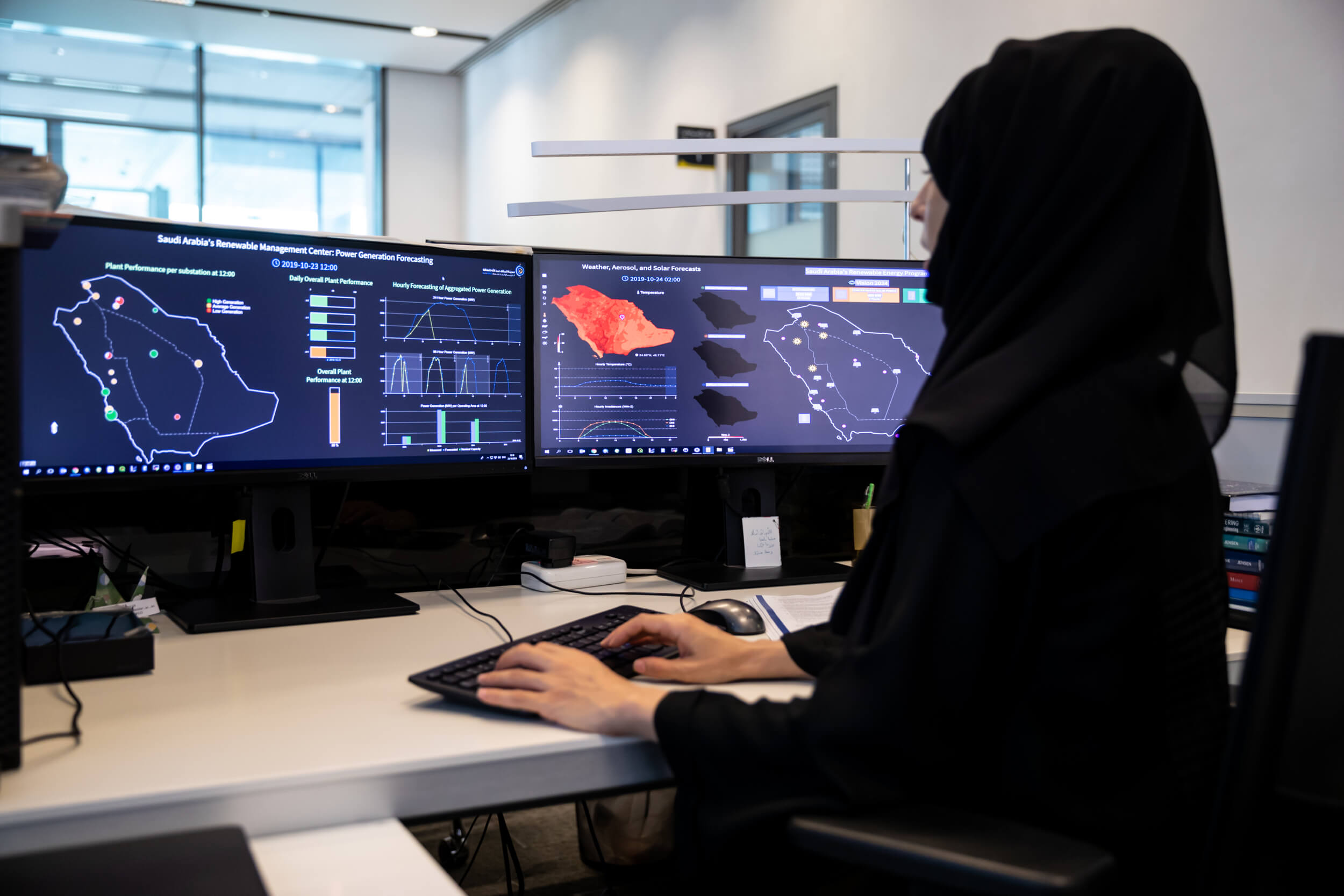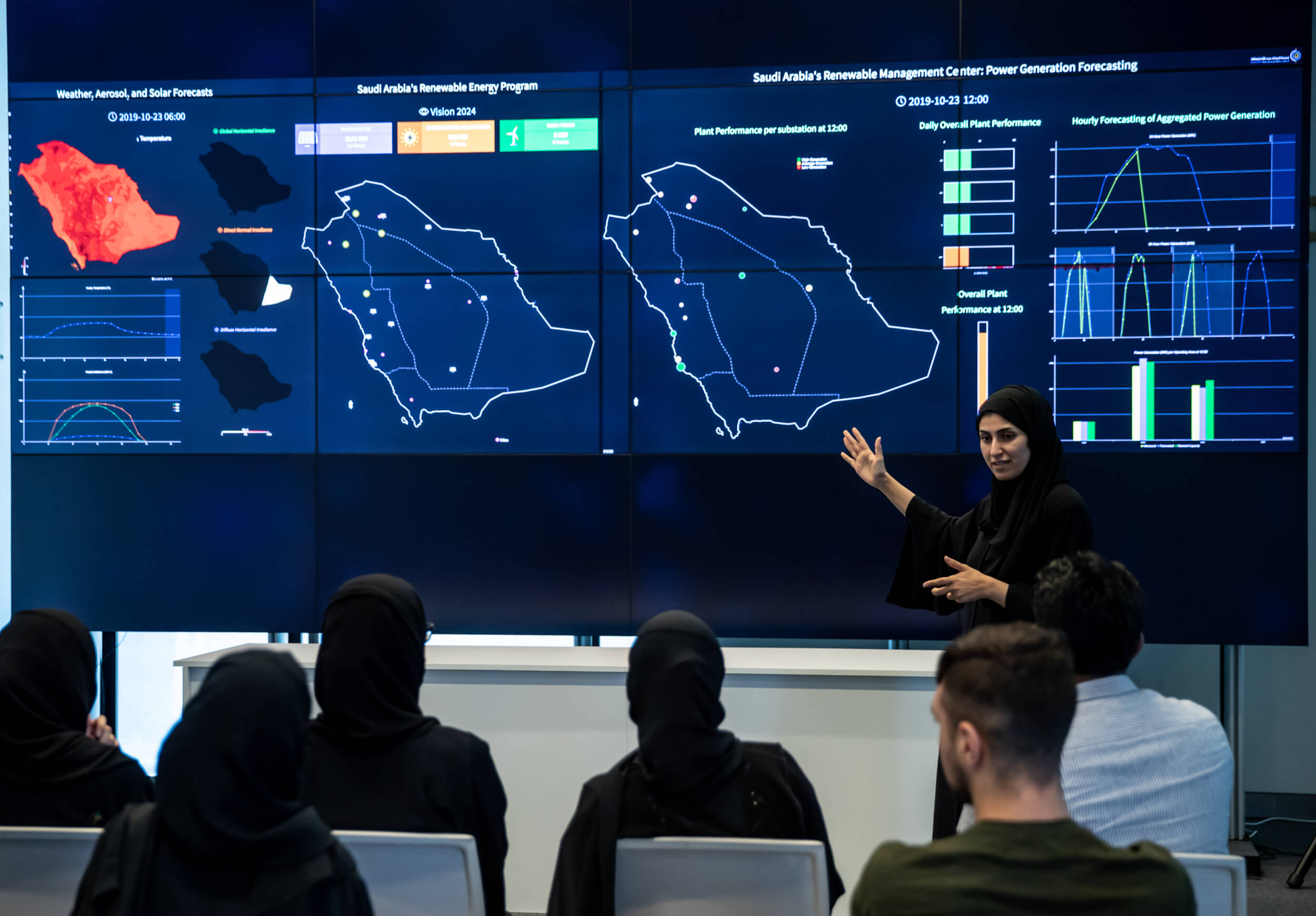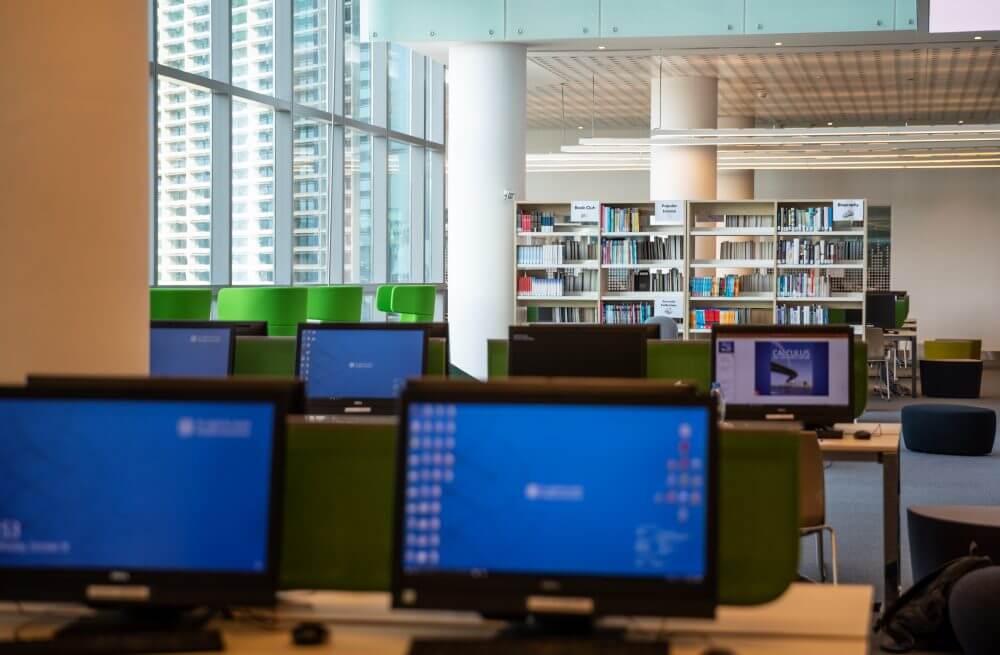Seven months into the UAE’s Year of Innovation, Masdar Institute of Science and Technology students have gained significant grounds in their efforts to support the development of the country’s knowledge capital, with groundbreaking research, academic awards and even patented inventions.
Ahmed Al Harethi, a Masdar Institute PhD student, is part of a team of researchers exploring the microalgae strains native to the UAE for their use in tackling food and energy challenges faced in the region by leveraging the UAE’s existing saltwater resources. Their work led to the detection of a new strain of microalgae that thrives in the harsh UAE climate and can be grown for biofuel, pharmaceutical products and food additives. A patent application was made for the discovered microalgae strain and the method of conditioning it to high salinities.
“I believe that algae hold a great potential for the UAE. It is the only biomass that we can mass produce in the UAE without fresh water or arable lands. It has applications that have direct relevance to the challenges of water, food, and energy security. I hope that this award will attract more students and researchers to our field and lab,” Al Harethi says.
Last year the UAE leadership announced that 2015 would be the UAE’s Year of Innovation, and targeted seven sectors where it will stimulate innovation to achieve this goal: renewable energy, transport, education, health, technology, water and space. The strategy and targeted sectors complement Masdar Institute’s foundational vision and mission to support the UAE’s knowledge-economy transformation by applying R&D to advance key national interests.
The research Al Harethi has been involved in responds to the goals of the National Innovation Strategy, with its application to the water and energy sectors, and additionally can help enhance the country’s overall sustainability and food, energy and water security by providing it with a potential biofuel and food crop that can be irrigated with saltwater.
Discussing plans for his research going forward, Al Harethi said, “Our next goal in this research project is to build a test pilot plant and to start producing and testing our strains at ambient temperatures and in larger quantities. My long-term goal is to commercialize microalgae technologies to bring to the market within the next five years.”
Al Harethi’s research has the potential for many positive outcomes regarding food, energy and water provision, and he has been recognized as ‘the first UAE national to invent a mechanism for generation of biofuels with industrial quantities using genetically modified algae.’ For his contribution to the UAE’s innovation ecosystem, Al Harethi was awarded with the Medal of Top Emiratis by the UAE cabinet on the occasion of the 43rd UAE National Day, signifying the importance of his research to the sustainable development of the UAE.
Another student who is pursuing breakthroughs of relevance to his home country is Saeed Al Nofeli, an MSc student from Masdar Institute’s Engineering Systems and Management Program. He was one of the two inaugural recipients of the BP Innovation Scholarships, which is a two-year, fully-funded merit scholarship awarded to graduate students in any one of Masdar Institute’s nine engineering concentrations. He was awarded the scholarship based on his thesis research on systems optimization of a training platform that can be used to improve camel training and racing.
Finding a solution to issues related to UAE specific culture was of particular importance to Al Nofeli and this objective was used as a starting point for his research. After identifying issues and problems with the existing technology in camel racing, he developed a robot camel jockey device that provides a sustainable and innovative solution to the existing technology of this traditional sport. Further to this, Al Nofeli has also developed a training and tracking device which will provide biological data to owners about their camels.
According to Al Nofeli, “The benefits of these devices to the UAE and other camel racing nations is two-fold; the devices are targeted to solving the challenges of camel racing in the UAE, by bringing new and innovative technology to the market. Secondly, the devices ensure that owners can find out more about their camels and therefore can identify areas for improvement.”
Al Nofeli has also been the recipient of a number of grants and competitions including the Khalifa Fund-Innovation 360 Ibtikari grant (April 2014) and the Khalifa Fund Techno-preneur competition (May 2014). These awards have helped ensure that Al Nofeli’s ideas have evolved and been developed into prototypes with the help of incubators. Currently the biggest markets for these two devices are the UAE and Qatar, however in the future Al Nofeli hopes to extend and optimize the training and tracking device for use in other racing sports such as horse racing and greyhound racing.
Joining him in his pursuit of innovative research that resonates with the UAE is Alya Altunaiji, a PhD student in the Water and Environmental Engineering Program. Her work uses microbes found in the digestive systems of camels to develop a new kind of system to break down waste into useful products through anaerobic digestion.
Altunaiji’s research aims to identify the best microbes in camel’s digestive systems for use in bio-refineries that utilize anaerobic digestion processes to break down waste into useful products like biogas and fertilizer. Currently, cow microbes are the standard in such bio-refineries, but camel microbes are hardier and able to survive harsher environments, requiring less water and providing a wider range of options for use. Abu Dhabi could capitalize on this discovery by exporting camel microbes as a cheaper, faster and water-conserving alternative to countries that currently depend on cow-microbe anaerobic generators to provide energy.
Altunaiji found her experience at Masdar Institute to be a challenging and rewarding one, allowing her to expand her knowledge in her chosen field by collaborating with students that attend the Institute from all over the world. Altunaiji explains, “Masdar Institute has enabled me to expand my knowledge and expertise in my field by encouraging collaborations with students who attend the Institute from all over the world. The mix of students and their varying backgrounds has fostered an environment that allows for creativity and innovation while solving important issues of sustainability.”
These pioneering young Masdar Institute students are just the first of many talented young men and women who are responding to the call of the UAE leadership for innovation and excellence. Their novel research and inventions will help secure the competitive advantage and culture of innovation that the UAE’s prosperous knowledge economy must be built upon. These young Emirati innovators hope to inspire others to be part of the UAE’s prosperous, successful and sustainable future.


